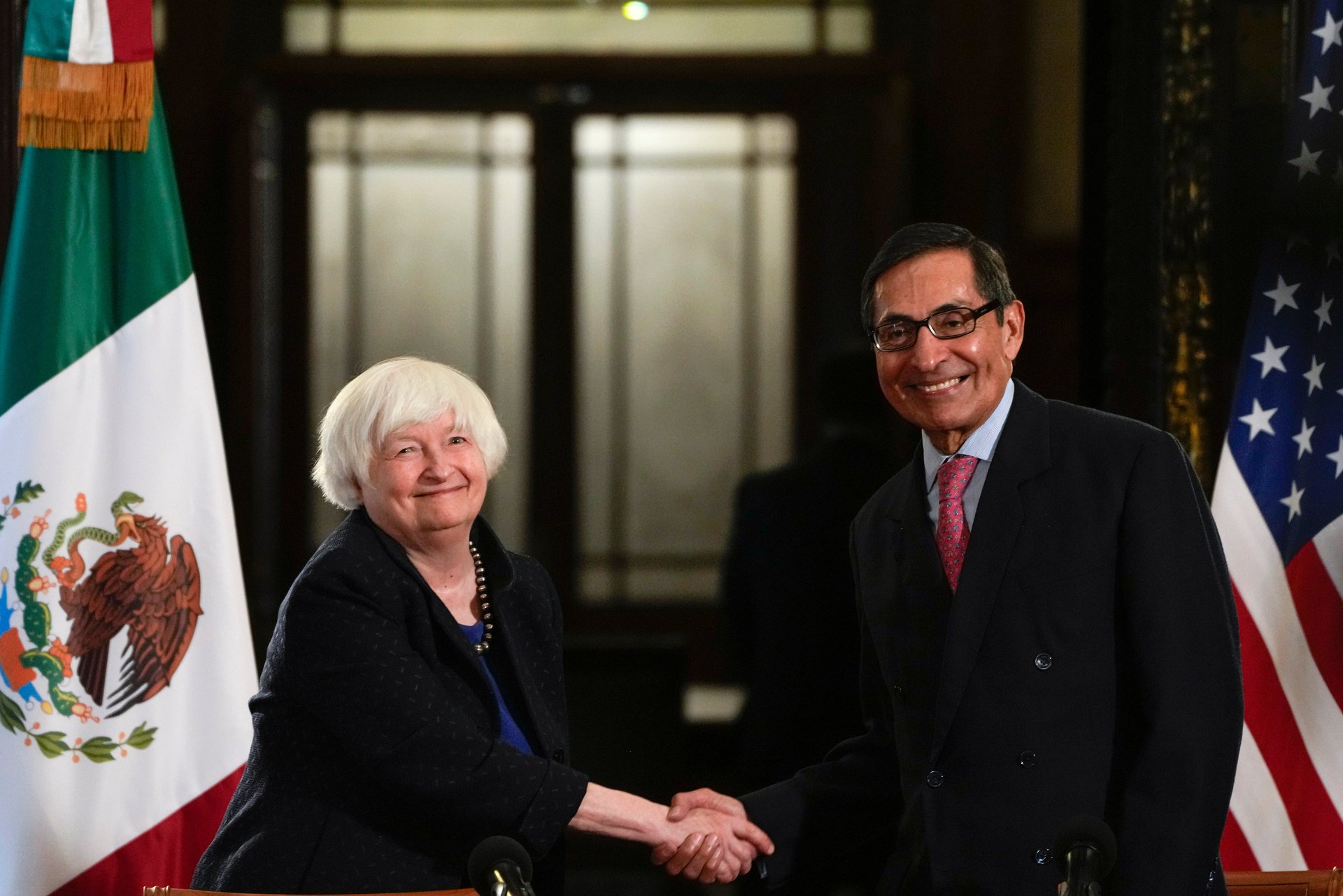New US-Mexico agreement to monitor foreign investments comes as more Chinese money flows into Mexico
The United States and Mexico have agreed to monitor foreign investments and regularly share information about the screening process

MEXICO CITY (AP) — As more Chinese money flows into Mexico, the United States and Mexico on Thursday agreed to monitor foreign investments and regularly share information about the screening process.
Suggested Reading
The U.S. is becoming “more deeply integrated with Mexico,” Treasury Secretary Janet Yellen said at a news conference in Mexico City. “We want to see further deepening of our economic relationship with respect to our supply chains, supply chain resilience, and we think it’s important to be somewhat more coordinated than we have been when it comes to investment screening.”
Related Content
The U.S. wants to prevent Chinese purchases of sensitive American technology that could be accessed through other U.S. trading partners. The U.S.-Mexico agreement may help achieve that goal.
“Our focus in talking to Mexico is not just China-focused. It is the general belief that it is important to make sure there are not national security concerns that are implicated in any foreign investments,” Yellen said.
“This engagement is further evidence of the close partnership between our two countries, not only on matters of trade but also on critical issues of national security,” she said.
The U.S. is Mexico’s top trading partner, with bilateral trade reaching more than $850 billion in 2022. China has increased investments in Mexican companies in the past few years and is the fastest-growing source of foreign investment in Mexico.
The U.S. Treasury Department said the new agreement addresses “national security risks that can arise from certain foreign investment, particularly in certain technologies, critical infrastructure, and sensitive data."
For Mexico, the agreement opens opportunities to negotiate reduced costs in remittances, one of the country’s primary sources of income, said Mexican Finance Minister Rogelio Ramírez de la O. Yellen said it would benefit both countries to reduce the cost of remittances — money sent by foreign workers back to their home country — across the border.
“We’re committed to working to see if we can accomplish that,” she said.
Mexico will receive a record of more than $64 billion in remittances in 2023, an increase of almost 10% compared with the previous year. Of that, 96% would come from the United States and it would represent almost 4% of Mexico's GDP.
Ramírez de la O said Mexico recognizes that it “needed to update” its methods for investment analysis and would prioritize the lithium sector, since Mexico considers that an area of national security interest.
White House National Security Council spokesman John Kirby told reporters that “we don’t ask countries to choose between the United States and China when it comes to economic opportunities or investment.”
He said the U.S. is interested in providing economic "alternatives to some of the less transparent, less reliable, high interest loans that other nations around the world seem to be willing to proffer. But again, every nation has to decide for itself.”
The Biden administration acted to ban the exports of advanced computer chips to China last year. In August, President Joe Biden signed an executive order to regulate high-tech U.S.-based investments going toward China. Washington said that move was targeted but also reflected an intensifying competition between the world’s two biggest economic powers.
Biden and China’s president, Xi Jinping, met in November and pledged to stabilize their relationship as they showcased modest agreements to combat illegal fentanyl and reestablish military communications. Deep differences on economic competition and global security threats remain.
Earlier during her trip to Mexico, Yellen promoted her agency’s new strike force to help combat illicit fentanyl trafficking as the U.S. and China step up efforts to stop the movement of the powerful opioid and drug-making materials into the United States.
__
Hussein reported from Washington.